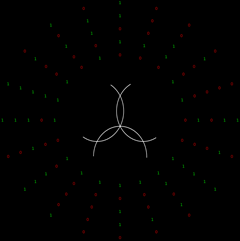Ministry of Science & Technology
Securing our future - a huge ‘quantum’ leap in data encryption
Posted On:
11 JUL 2024 6:30PM by PIB Delhi
Indian scientists have made a major breakthrough in cybersecurity. They've created a new, user-friendly way to generate truly unpredictable random numbers, which is crucial for stronger encryption in quantum communications. This advance could revolutionize how we protect sensitive data in the future.
The security of quantum communications relies on inherent randomness as a seed, such as randomness in measurement bases chosen by sender and receiver. This prevents malicious agents from deciphering secure information through prior knowledge of such choice of bases.
The Quantum Information and Computing (QuIC) lab at Raman Research Institute, Bengaluru, an autonomous institute of Department of Science and Technology, had performed a photonic experiment to demonstrate violation of what are called the Leggett Garg Inequalities (LGI)-- -- a litmus test for "quantumness" in a system in a loophole free manner.
Taking this further, over the last few years, the group has carried out extensive research in collaboration with researchers from Indian Institute of Science (IISc), Bengaluru, IISER-Thiruvananthapuram and the Bose Institute, Kolkata to use such LGI violation in a completely unexplored domain-- truly unpredictable random number generation, secure against device tampering and imperfections. These numbers are crucial in applications like cryptographic key generation, secure password creation and digital signatures among others.
“We have successfully generated random numbers using temporal correlations certified by the violation of the Leggett Garg Inequality (LGI). These are temporal analogues of the popularly known Bell inequalities-- a set of mathematical expressions that compare the predictions of quantum mechanics with those of classical physics. Our experimental setup ensures a loophole-free violation of LGI, providing an additional advantage of generating loophole-free randomness,” said Professor Urbasi Sinha, faculty at RRI, PI of the QuIC lab where the work was carried out, and the corresponding author of the paper recently published in the Physical Review Letters.
In today's digital world, where we rely heavily on technology, strong passwords are vital for everyone's safety. This new method offers the enhanced protection we all need in our daily lives, by using truly random numbers to generate keys that will be used to encrypt the passwords, the researchers noted.
“It is resilient against attacks on the initial state, which is typically the most vulnerable point in this scheme. The certified random numbers are important because any predictability of these numbers can compromise the entire security system, making it vulnerable to attacks. These numbers ensure the robustness of encryption, authentication and data integrity processes and maintain trust and security in digital interactions,” added Sinha.
There are several advantages in generating certified random numbers using this method.
“These include the creation of strongly protected passwords, enhanced account security by resisting brute-force attacks, ensuring uniqueness, integrity thereby preventing forgery and token generation with multi-factor authentication, adding a crucial security layer in this vulnerable cyber world” said Dr. Debashis Saha, IISER Thiruvananthapuram faculty and co-author of the study.
In the photonic experiment led by RRI, the team replaced this conventional two-particle system with a single-particle setup.
“The existing two-particle scenario for measuring correlations had drawbacks, wherein, an entangled state of two particles would get created and transferred to two measurement stations. Noise generated during the process could, thus, interfere in the entanglement. Besides, the requirement of maintaining a distance of 200 meters between the two particles to ensure the loophole free design, makes the whole process highly complicated”, said Pingal Pratyush Nath, a PhD student at IISc and the first author of the study, who is co-supervised by Professor Sinha.
Additionally, the single-particle scheme used measurements that required temporal separation instead of spatial, thus providing a compact random number generator with a potential to get commercialized for varied applications.
The experiment generated over 9,00,000 random bits at a rapid rate of nearly 4,000 bits/second. This high random number generation can help in using these numbers towards various applications that require rapid randomness.
With further engineering interventions and innovations, devices adopting this method could find powerful applications not only in cybersecurity and data encryption, but also in the context of varied types of randomness-based simulations and randomized control trial statistical studies in diverse important areas.
“These include economic surveys, drug designing/testing, as well as for any futuristic technology that would rely on provable unpredictability as a critical resource”, said Bose Institute’s Professor Dipankar Home, another co-author of the study.
Paper Link – https://journals.aps.org/prl/abstract/10.1103/PhysRevLett.133.020802

An artistic schematic diagram of random number generation from three time LGI violation.
****
PK/PSM
(Release ID: 2032507)
Visitor Counter : 3010